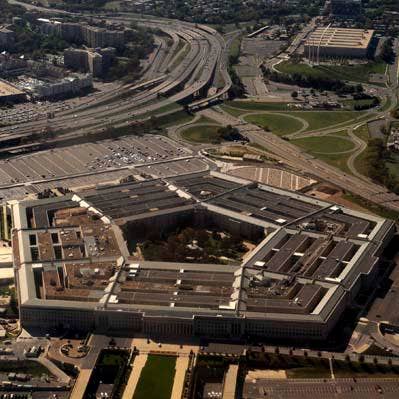Judge Tosses Oracle's Challenge To JEDI Cloud, Delivering Win To AWS
The military's gate criteria around ‘high availability’ was valid, and there was no ‘organizational conflict of interest’ that impacted the integrity of the RFP process, Judge Eric Bruggink rules in clearing the potentially $10 billion award to go to AWS or Microsoft

Oracle's legal challenge to the JEDI procurement process was rejected Friday by a federal judge.
Judge Eric Bruggink ruled in favor of the government and Amazon Web Services, which voluntarily joined the case as a co-defendant to protect its own interests, clearing one of the last potential obstacles to delivering the potentially $10 billion cloud transformation contract to the two finalists in the process: AWS and Microsoft.
In the short judgment, Bruggink wrote that a specific "gate criteria" for "high availability and failover"— one that Oracle argued exceeded the military's needs—can be enforced. Oracle conceded it could not meet that threshold when it submitted its bid last year, he noted.
[Related: Oracle Exec Says Battle Not Over For JEDI Cloud Deal: Report]
The judge went on to find conflicts of interest did not undermine the integrity of the process. The investigation conducted by the Pentagon's contracting officer concluding there was no "organizational conflict of interest" and that "individual conflicts of interest did not impact the procurement" was done in a way that was "not arbitrary, capricious, an abuse of discretion, or otherwise not in accordance with the law," he said.
Oracle spokesperson Deborah Hellinger issued a statement: "Oracle’s cloud infrastructure 2.0 provides significant performance and security capabilities over legacy cloud providers. We look forward to working with the Department of Defense, the Intelligence Community, and other public sector agencies to deploy modern, secure hyperscale cloud solutions that meet their needs."
Oracle wouldn't comment on whether it planned to appeal the decision. Amazon did not immediately comment on the ruling.
JEDI Cloud is DOD's pathfinder effort to deploy an enterprise-wide, general purpose cloud. As a component of DOD's multi-cloud, multi-vendor cloud strategy, JEDI Cloud promotes digital modernization, and aligns with the National Defense Strategy by supporting enhanced lethality and strategic readiness.
Elissa Smith, a DOD spokesperson, said in a statement that “we are pleased with the determination made by the U.S. Court of Federal Claims. This reaffirms the DOD's position: the JEDI Cloud procurement process has been conducted as a fair, full and open competition, which the contracting officer and her team executed in compliance with the law. DOD has an urgent need to get these critical capabilities in place to support the warfighter and we have multiple military services and Combatant Commands waiting on the availability of JEDI. Our focus continues to be on finalizing the award decision."
The threshold confirmed by the judge, the only one of the "gate criteria" mentioned in his ruling, says the JEDI provider must meet "high availability and failover" requirements by having three existing data centers 150 miles apart each supporting one IaaS and one PaaS offering that achieve a "moderate" level of FedRAMP compliance.
In the lawsuit filed on Dec. 6 in the U.S. Court of Federal Claims, Oracle argued that requirement, and two of the other seven gate criteria, were crafted just to restrict the field in favor of AWS winning the lucrative and prestigious contract.
The Redwood Shores, Calif.-based tech giant went on to accuse three government employees involved in the JEDI RFP process of having conflicted relationships with Amazon that led to the needlessly exclusionary thresholds.
As to those three officials—Deep Ubhi, Anthony DeMartino and an unnamed retired naval officer who joined AWS in 2018—AWS said none of them played an important role in drafting the solicitation package, and none of their relationships with AWS stemmed from their work in the government.
Oracle also argued the JEDI contract should not have been designated for a single vendor—an issue Judge Bruggink didn't touch in his ruling.
Oracle argued the "indefinite delivery, indefinite quantity" nature of the Joint Enterprise Defense Infrastructure contract puts it under the purview of a law Congress passed in 2008 restricting single-supplier awards.
In June, AWS asked the judge to throw out Oracle's legal challenge as an attempt "to dictate" to the Department of Defense what the military's needs should be.
AWS argued Oracle misstated facts about the former military officials with ties to AWS and misinterpreted federal procurement law.
Oracle wants a federal court "to declare that Oracle's admittedly deficient solution is "good enough"" for the military, AWS argued.
Contracting Officer Chanda Brooks "identified three separate rationales that each independently required DoD to use a single award," Amazon's motion reads. "Oracle's challenges to those rationales, however, ignore the Contracting Officer's detailed factual findings regarding national security and technological complexity—Oracle simply disagrees as to the best interests of DoD and the United States military."
As to the gate criteria, military officials have already detailed their justifications for why those are necessary "minimum requirements for JEDI Cloud," the motion reads.
Oracle already lost a challenge to the JEDI bidding process through the Government Accountability Office, as did IBM.
The JEDI initiative is only one component of the military's ambitious cloud modernization strategy.
A Cloud Strategy document presented to Congress makes a distinction between the DoD's need for a "General Purpose" cloud, and ones that will be "Fit For Purpose".
The General Purpose cloud that will go to AWS or Microsoft will be the cloud of first-choice, with a "primary implementation bias" for all defense agencies.
Oracle’s stock declined less less than 1 percent Friday afternoon to $59.50.